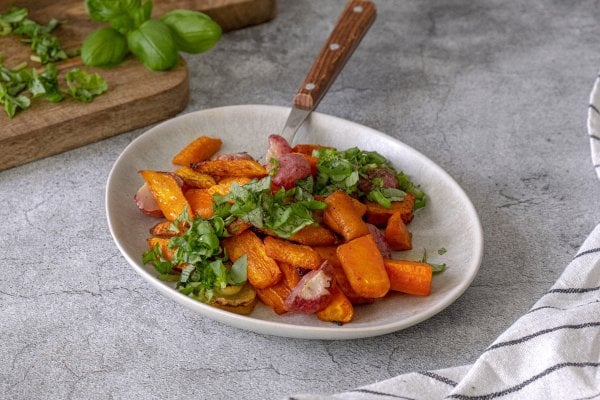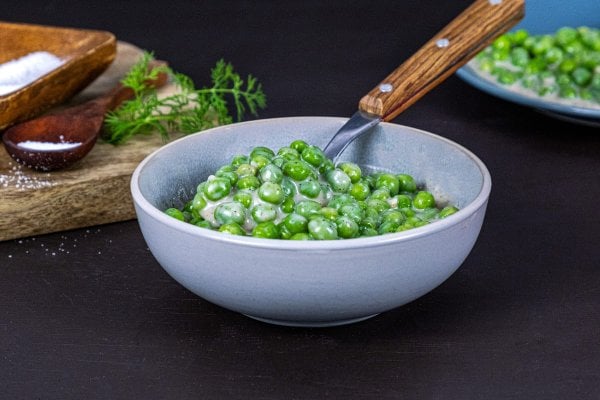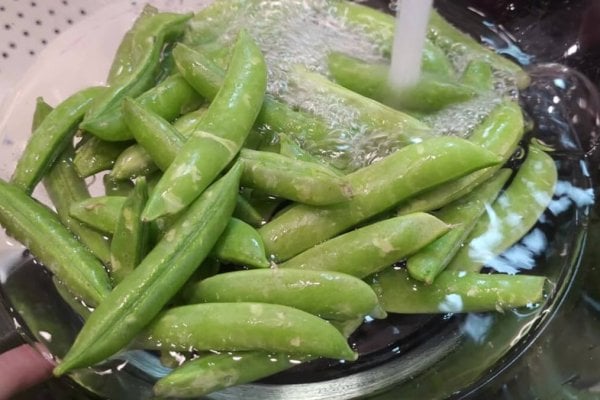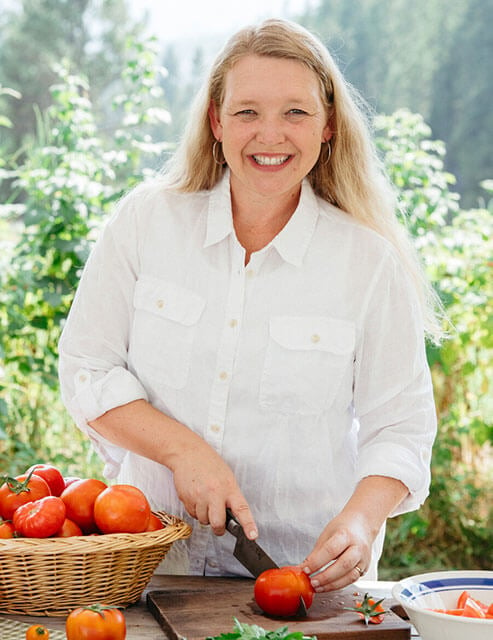


Food prices are going up! Here are my top eight tips for beating inflation at the grocery store.

Stock Up on Staples
It’s important to understand what inflation really means. When we talk about inflation going down (vs. going up), it doesn’t mean we’re actually saving money on groceries, it just means the price isn’t going up as quickly as the year before.
Your food is always getting more expensive, so as long as you have staples that will last on your shelf that means you’re going to be paying less for them now than you would later. This is especially important if your food budget isn’t increasing year over year.
Make sure, whenever you can, that you’re stocking up on extra staples. If you hit a great sale and have a few extra dollars in your food budget, grab a few extra staples (things your family will actually eat) and store them in the pantry.
Items like rice, beans, baking goods, etc. Here are seven pantry staples I’ll never be without!
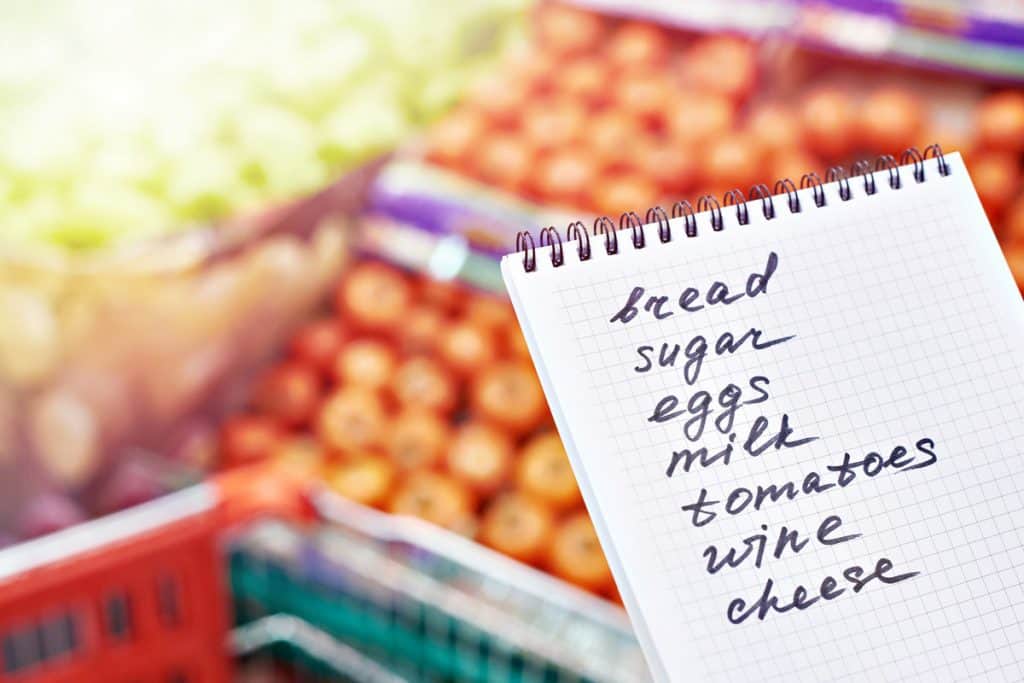
Shop With a List
Not only a shopping list but a shopping list that came from a meal plan. And that meal plan came from you walking through your house to see what you already have on hand.
When you’re buying in bulk it’s also important that you’re working through your food stores, continually replenishing and using the oldest food first.
If you’re just stocking up but never using the food, you risk the food going bad and wasting all that money you spent to get ahead.
To do this, go to your freezers, pantry shelves and refrigerator. See what you already have and create a meal plan from there, then make a list of the additional items you need to finish out the week.
If you want to get even further ahead, grab the sales flyer from the store and adjust based on what’s on sale.

Keep Less Food in the Refrigerator
If you’ve followed us for any length of time this tip may seem counter-intuitive. But foods stored in the refrigerator are perishable and easy to lose track of.
Storing less in your refrigerator means you can see the leftovers that need to be eaten, and it hopefully means everything you purchase has a place in that week’s meal plan.
Having fewer options in the refrigerator also means you’re more likely to stick to your meal plan!
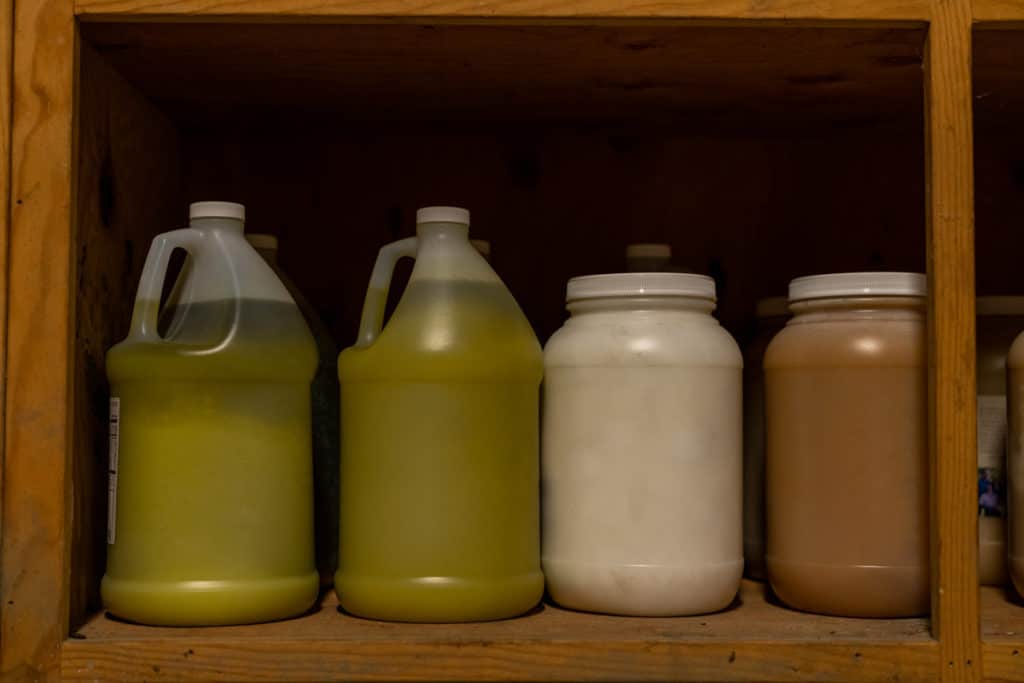
Pay Attention to Unit Prices
We’ve all been taught that buying in bulk is always a better deal, but in the last few years this has begun to change and it isn’t always the case anymore!
Be sure to look at the unit price and compare the larger sizes to the smaller ones. Sometimes there’s a great deal to be had!
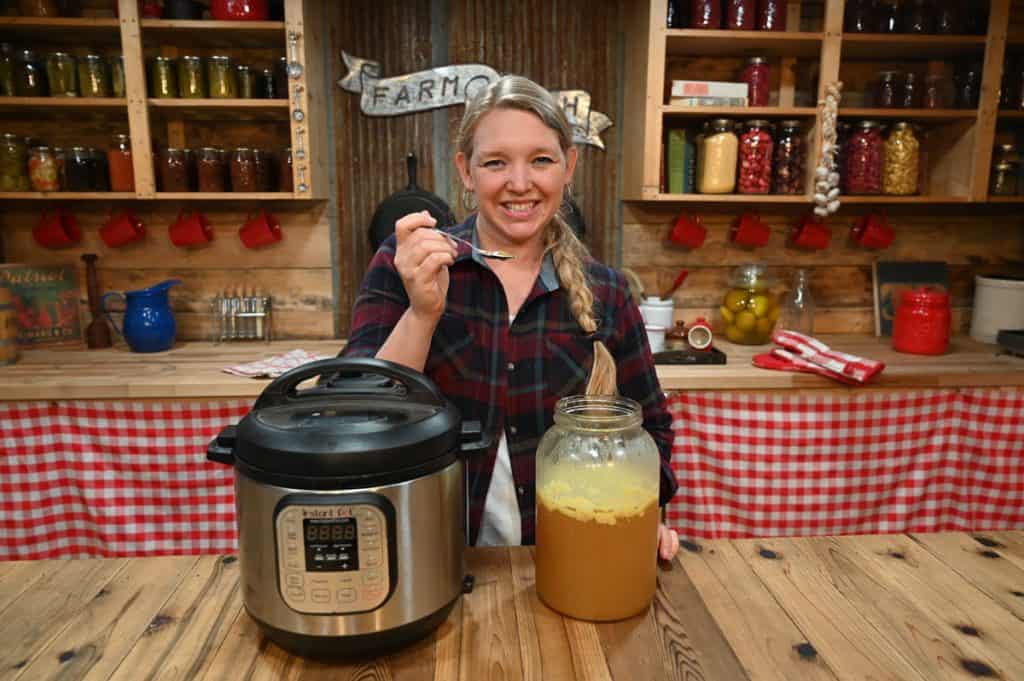
Make Better Use of What You Have
In our culture, we’ve gotten really comfortable with food waste. We’ve moved away from using every part of the animal, we’ve gotten spoiled by fresh fruit and veggies anytime we want and we’ve moved away from using our creativity to use up food we’ve paid for.
It used to be that people would keep a “trimmings pot” in the refrigerator or cold storage where they would store all the extra bits of fat from various kinds of meat. Once they had a good amount they would render all the fat down to use for cooking.
When chopping veggies, keep a container in the freezer where you store the ends of the carrots, skins of garlic and onions, leaves from the celery, herbs, etc. Then when you’re ready to make homemade bone broth, you have all the veggies and herbs to flavor your broth.
Keep ends of cheese, or pieces of cheese that are a bit harder than you’d like to snack on, and store them in the freezer. These are perfect to toss into soups for added flavor!
We have something we like to call “survivor soup” where we will clear out the refrigerator once a week using up any leftovers or veggies that need to be eaten. Sometimes adding leftovers with some homemade bone broth makes the most delicious soups we’ve ever had!
In your meal plan, always plan in a meal where it’s leftovers! Even if this means everyone is eating something different for dinner! We don’t want to spend any extra money than we have to to feed our family healthy meals, so consuming the leftovers instead of throwing them out is always best.
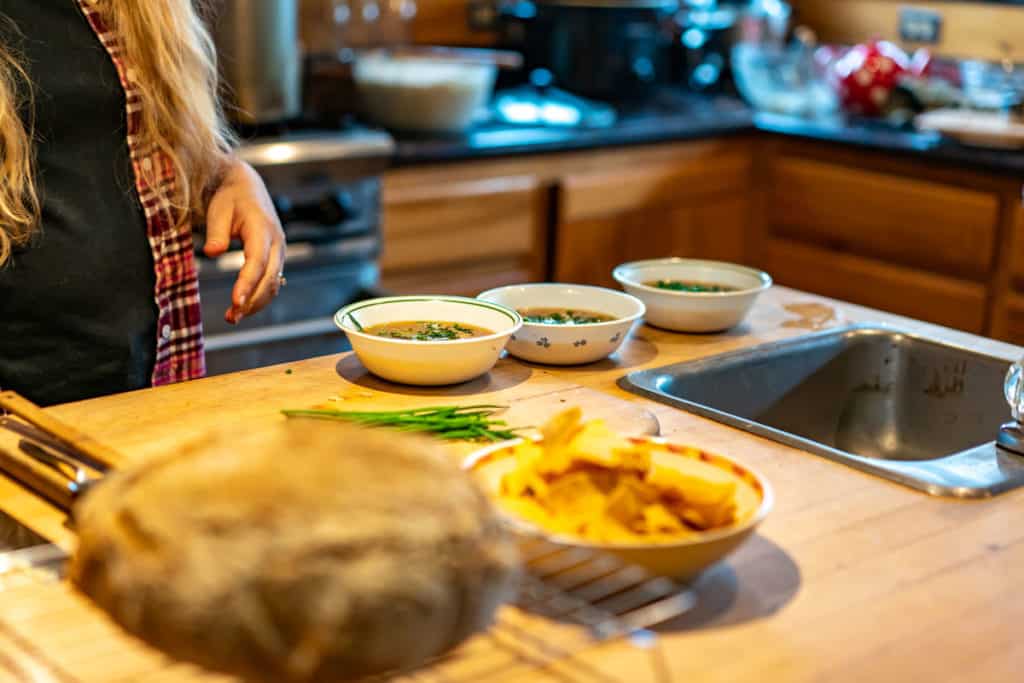
Simplify Your Diet
Stop buying such a large variety of foods! I know it’s fun to be creative and exotic with our meals, but when you have to buy extra sauces or condiments in order to make these dishes, this is often where you’ll spend a large portion of your food budget.
Simplifying your diet means you don’t need additional ingredients on hand and you can really create some delicious meals.
If you focus on high-quality proteins and veggies, the flavor is going to be so good that you’re not going to need additional sauces to improve the flavors.
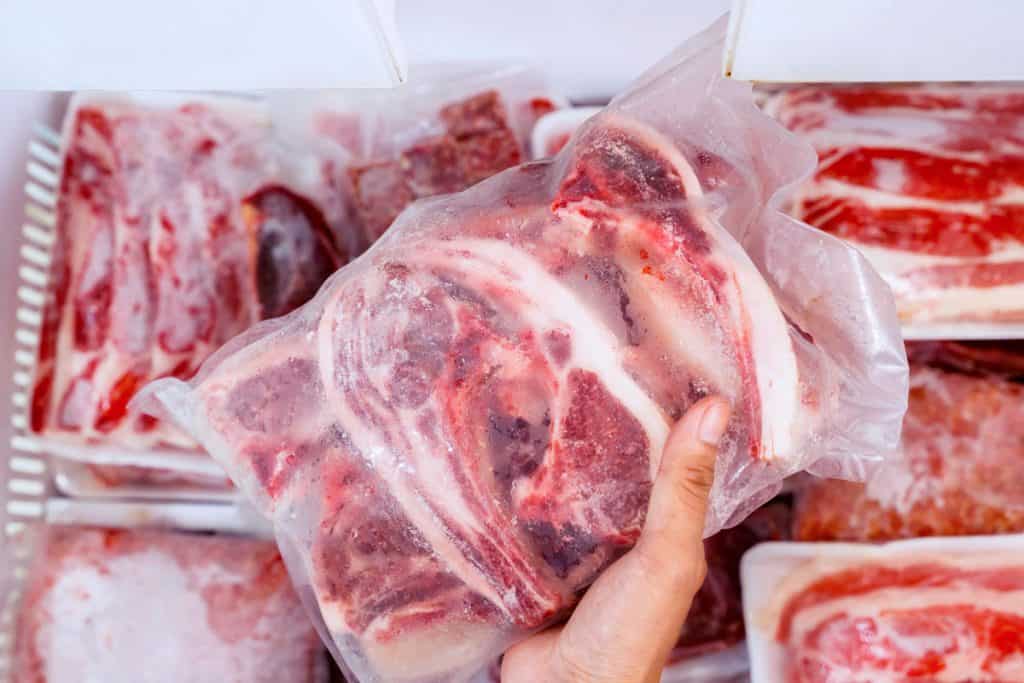
Skip the Grocery Store
How about skipping the grocery store altogether and going directly to the farmer or from bulk shopping co-ops.
We love shopping from Azure Standard where we can get bulk orders of large amounts of food at really good unit prices. Homesteading Hack: If you’re a first-time Azure Standard customer, use coupon code “HOMESTEADINGFAMILY15” at checkout for 15% off your order of $100 or more!
Also, stop buying meat from the grocery store. Find a local farmer where you can buy 1/4 or 1/2 an animal in order to be able to save huge amounts of money and get amazing prices on your meat.
This not only supports your local agriculture, which is so important, but it also gets you a really good supply of meat that is inflation-proof as soon as it hits your freezer.
See if you can work out a deal with a local farmer! Where we live, there are many farms that will trade labor for food!
Checking out your local farmer’s market is the best way to ask around to see what opportunities for buying food are in your area.
Check out this post for more tips on buying in bulk and learning how to properly store it.
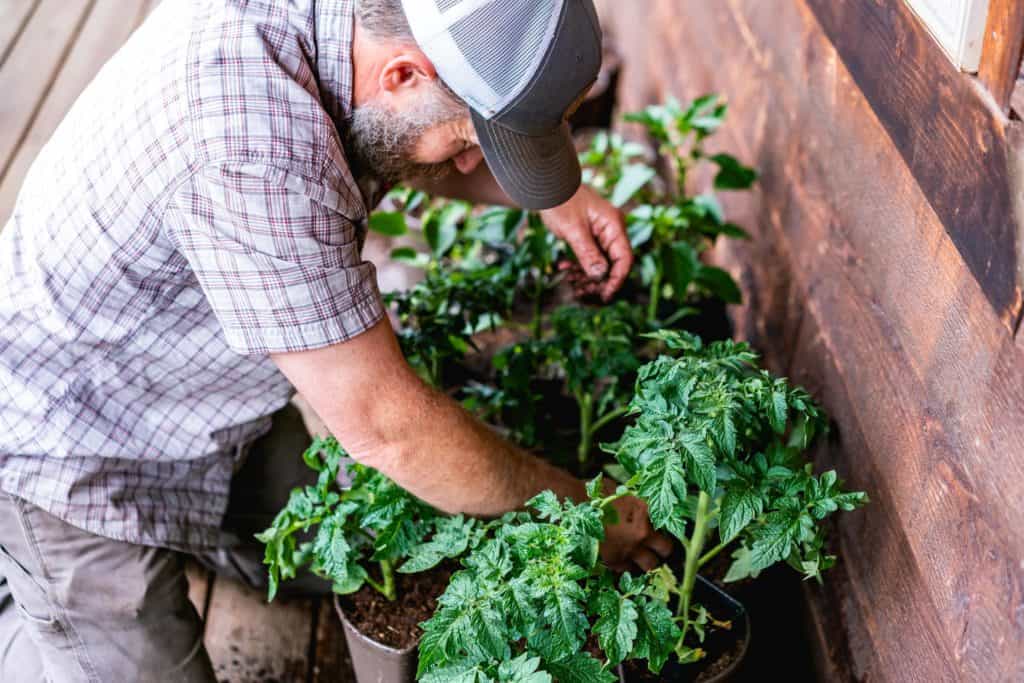
Start Growing Your Own Food
If you’re not growing a garden yet, get it in the works for this year. Prices are expected to continue to go up on food, and pretty steeply. Some items are increasing as much as 50% which is a lot of money!
Offset inflation by growing food in your own yard. A packet of seeds only costs a few dollars and it can grow hundreds of pounds of food.
Make some plans to preserve your food so you can store it on your pantry shelf. If you’re new to canning and preserving, you may be interested in my course, The Abundant Pantry: Canning, where I teach you how to fill your pantry with healthy, SAFE canned foods and how to save money by buying in season and preserving for use all year long.
If you’re not quite ready for a full course, give this free Meals on Your Shelf four-part video series a try. You’ll can right along with me as I teach you how to put jars of a delicious meal on your pantry shelf.
No matter what steps you take, you can beat inflation. Maybe not forever, but any food you buy and store today will cost less than it will next year.

Other Posts You May Enjoy
- Tips for Butchering Meat
- Best Way to Use Up Garden Produce – Garden Stir FryMy Secret to Running a Productive Household
- Easy Freezer Meal Cooking Tips (Recipes & Helpful Tips)
- Household Management Video Series
- Building Up A Well-Stocked Pantry & Long-Term Food Storage Supply
- Meal Planning on the Homestead (Eating Seasonally)
- The Future of Gold & Silver
- Top Principles to Know When Buying Gold & Silver











